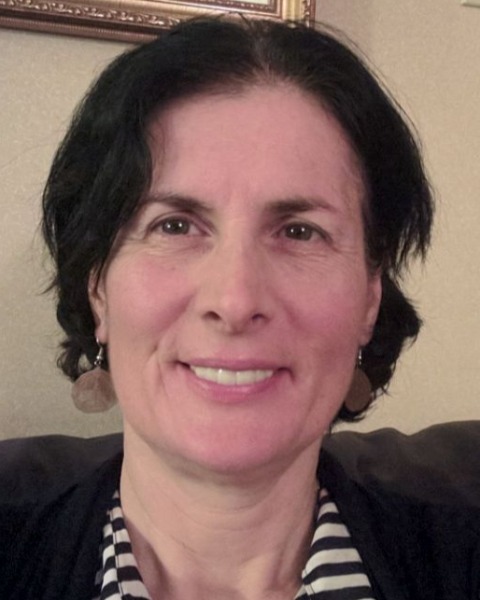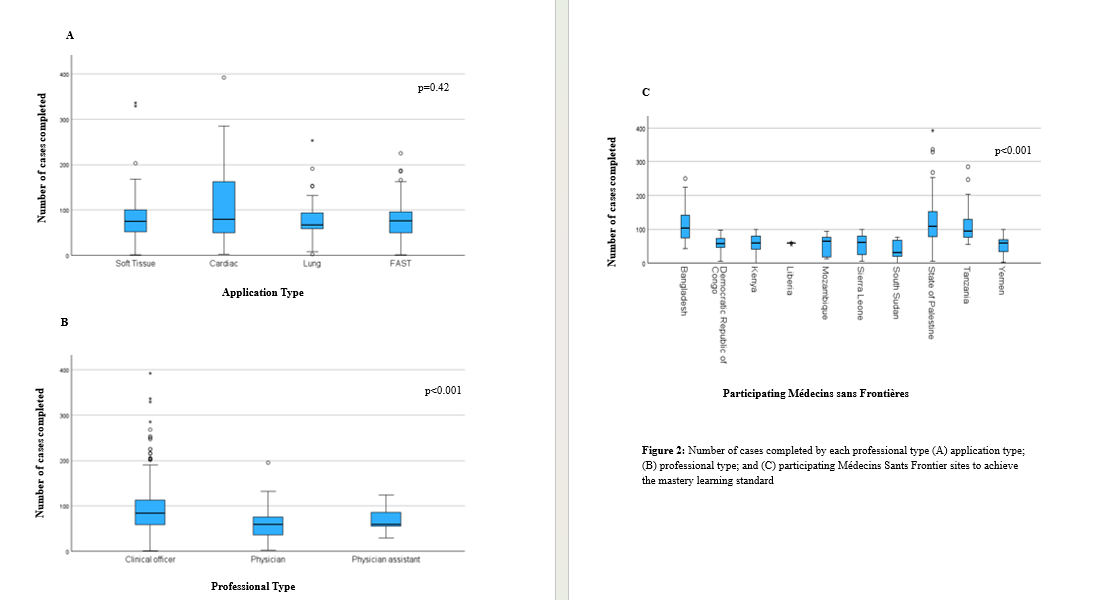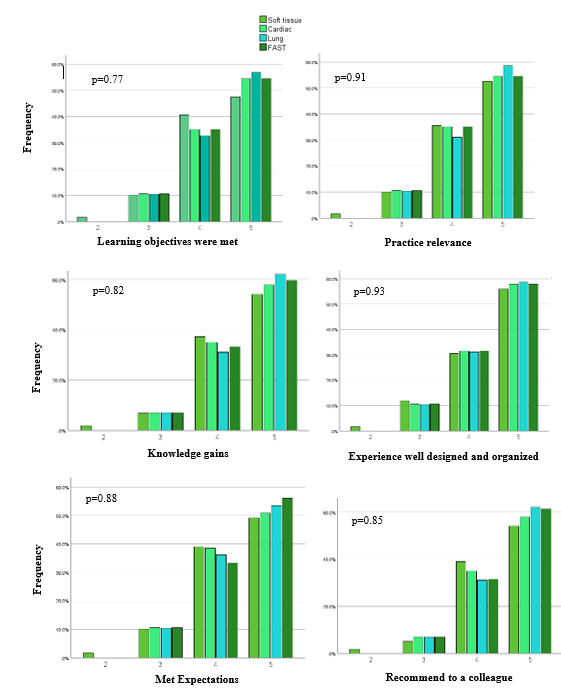Global Neonatal & Children's Health 1
Session: Global Neonatal & Children's Health 1
724 - Web-Based Deliberate Practice of Pediatric Point of Care Ultrasound Cases in Resource Limited Settings: A Multicentre Implementation and Effectiveness Study
Friday, April 25, 2025
5:30pm - 7:45pm HST
Publication Number: 724.7036
Kathy K. Boutis, Hospital for Sick Children, Toronto, ON, Canada; Angelo Ricci, University of Toronto Temerty Faculty of Medicine, Woodbridge, ON, Canada; Daniel Lindsay, University of Toronto Temerty Faculty of Medicine, Toronto, ON, Canada; Michelle S. Lee, Hospital for Sick Children, Toronto, ON, Canada; Erin Stratta, Doctors Without Borders, Brooklyn, NY, United States; Carla SCHWANFELDER, Médecins Sans Frontières / Doctors Without Borders, Geneva, Geneve, Switzerland

Kathy K. Boutis, MD MSc (she/her/hers)
Professor
Hospital for Sick Children
Toronto, Ontario, Canada
Presenting Author(s)
Background: To expand point of care ultrasound (POCUS) capacity in resource limited settings, there is a need for educational interventions that enable participants to access web-based learning to optimize integration with other commitments.
Objective: The main objective of this study was to implement an on-line pediatric case-based POCUS course in low-resource medical settings and examine the learning outcomes and feasibility of this intervention.
Design/Methods: This was a multicenter prospective cohort study conducted in a convenience sample of clinicians affiliated with Médecins Sans Frontières (MSF) affiliated training sites. MSF POCUS trainers provided the standard hands-on on-site POCUS training and supplemented this with access to a web-based course that provided case practice. Participants provided diagnoses for 400 image-based POCUS cases from four common pediatric POCUS applications [soft tissue, lung, cardiac and focused assessment with sonography for trauma (FAST)] until the achievement of 90% accuracy, sensitivity (cases with pathology), and specificity (cases without pathology). Each participant also had the option to complete a course evaluation.
Results: From 10 MSF sites, 110 clinicians completed 82,206 cases. There were significant learning gains across the POCUS applications with respect to accuracy (delta 14.2%; 95% CI 13.1, 15.2), sensitivity (delta 13.2%; 95% CI [12.1, 14.2]), and specificity (delta 13.8%; 95% CI 12.7, 15.0). Furthermore, 90 (81.8%) achieved the mastery learning standard in at least one application and 69 (62.7%) completed a course evaluation on at least one application for a total of 231 evaluations. Of these, 206 (89.2%) agreed/strongly agreed that the experience had relevance to their practice, met expectations, and had a positive user design across the four applications. However, 59/110 (53.6%) clinicians reported a lack of protected time and 54/110 (49.0%) identified challenges with accessing internet/hardware.
Conclusion(s): In resource-limited MSF settings, implementing web-based POCUS case practice demonstrated successful learning outcomes despite approximately half of the participants encountering significant technical or time challenges. To optimize outcomes for a broader group of clinicians in resourse-limited settings, these results may serve as motivation for future web-based education interventions to include the functionality that serves the needs of these health care environments.
Table 1
.png) Learning Performance Metrics Among Médecins Sans Frontiers Participants
Learning Performance Metrics Among Médecins Sans Frontiers ParticipantsFigure 1
 Number of cases completed by each professional type (A) application type; (B) professional type; and (C) participating Médecins Sants Frontier sites to achieve the mastery learning standard
Number of cases completed by each professional type (A) application type; (B) professional type; and (C) participating Médecins Sants Frontier sites to achieve the mastery learning standardFigure 2
 Médecins Sans Frontières Clinician Feedback rated at degree of agreement (1=strongly disagree; 2=disagree; 3=neither agree/disagree; 4=agree; 5=strongly agree)
Médecins Sans Frontières Clinician Feedback rated at degree of agreement (1=strongly disagree; 2=disagree; 3=neither agree/disagree; 4=agree; 5=strongly agree)
